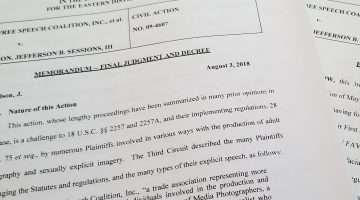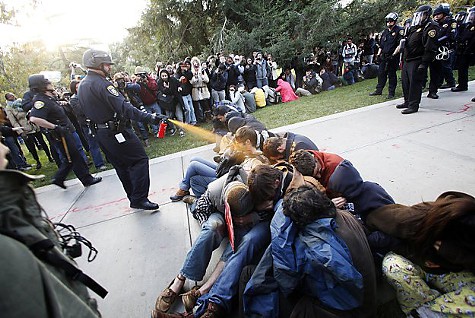 LOS ANGELES, CA – A California appeals court on Tuesday heard new arguments in one of the most notorious sexual abuses cases in U.S. history. At issue: Whether a fugitive from justice retains certain due process rights if he seeks them in absentia.
LOS ANGELES, CA – A California appeals court on Tuesday heard new arguments in one of the most notorious sexual abuses cases in U.S. history. At issue: Whether a fugitive from justice retains certain due process rights if he seeks them in absentia.
The case at hand is that of Roman Polanski, an Academy Award-winning Hollywood director (Rosemary’s Baby, Chinatown, The Pianist) who in 1978 fled the U.S. in order to avoid incarceration after he pleaded guilty to having illegal sexual relations with a 13-year-old girl. Polanski, now 75, has remained at large in France since then while his attorneys continue the legal battle on his behalf.
According to Polanski’s lawyers, the judge who sentenced Polanski engaged in egregious misconduct by agreeing to a plea deal and then reneging after ex parte communication with an assistant district attorney not involved in the case. After the judge’s recent death, Polanski’s attorneys sought dismissal of the charges and sentence. Their request was denied under the so-called fugitive disentitlement doctrine, which holds fugitives are not entitled to certain due process considerations while they remain at large.
In other words, according to attorney Chad Hummel, had Polanski shown up in person to seek the court’s largesse, Los Angeles Superior Court Judge Peter Espinoza might have removed the legal sword of Damocles from above the director’s head. However, Polanski risks immediate arrest if he returns to U.S. soil. Therefore, Hummel told the California Second District Court of Appeal on Tuesday, Espinoza avoided a political hot potato and saved face for the court by relying on inappropriate precedent instead of entertaining the core issues of judicial and prosecutorial misconduct.
“That there were clear violations of Mr. Polanski’s constitutional rights is not seriously in question,” Hummel wrote in his appellate brief. “This case is one of the most notorious and high-profile criminal cases in our state’s history. There is no reported case like it; it has lasted more than 30 years and has been infected from the outset by extraordinary misconduct.”
Hummel told The Associated Press a recent HBO documentary about Polanski’s life, Roman Polanski: Wanted and Desired, uncovered new evidence about the judge’s behavior in the 1977 sexual abuse case, and that’s what led Polanski to seek dismissal of the original charges.
Polanski seeks outright dismissal or the assignment of the case to a different venue. Samantha Geimer (nee Gailey), the girl Polanski allegedly assaulted, also has asked the court to dismiss the charges. She said although the assault was real and traumatic, she doesn’t believe Polanski would assault anyone else and has suffered enough after 31 years as a pariah.
Polanski also is remembered as the husband of actress Sharon Tate, who after 18 months of marriage was eight months pregnant with the couple’s first child when she and four others were slain by members of Charles Manson’s “family” in August 1969.
(Image: Film Servis Festival Karlovy Vary)











No Comment